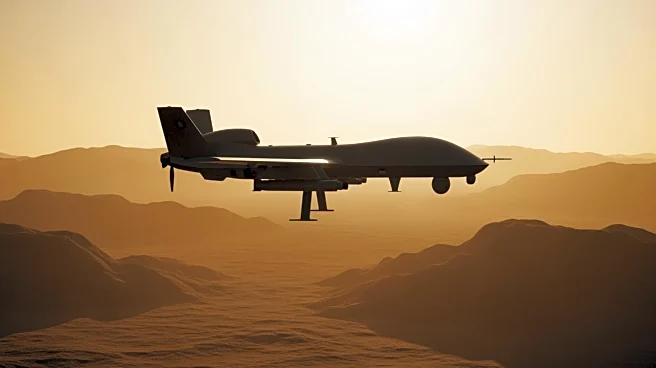What's Happening?
NASA has implemented a policy barring Chinese nationals from participating in its space programs, citing national security concerns. This move comes as the US and China intensify their competition in space exploration, particularly with both nations planning crewed missions to the Moon within the next five years. NASA's decision affects Chinese citizens who previously worked as contractors or students, as they have been denied access to NASA's facilities and IT systems. The restriction is part of a broader US policy that excludes Chinese astronauts from the International Space Station and limits scientific collaboration between the two countries.
Why It's Important?
The restriction highlights the growing tension between the US and China in the realm of space exploration, a field that is increasingly seen as a strategic frontier. The US aims to maintain its leadership in space, with NASA planning significant missions under the Artemis program. China's advancements, including recent tests of lunar landers, pose a challenge to US dominance. The restriction could impact scientific collaboration and innovation, as well as exacerbate geopolitical tensions. The decision underscores the strategic importance of space exploration in national security and technological leadership.
What's Next?
NASA is focused on its upcoming Artemis missions, with plans to land astronauts on the Moon by 2026. Meanwhile, China aims to send its astronauts to the Moon by 2030. The US Senate has emphasized the need for the US to maintain its lead in space exploration. The restriction on Chinese nationals may lead to further diplomatic discussions and could influence future policies on international collaboration in space. Both nations are also eyeing Mars exploration, adding another layer to the space race.










